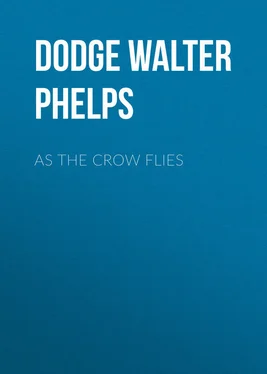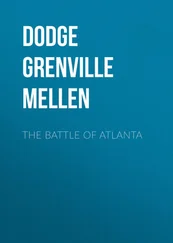Walter Dodge - As the Crow Flies
Здесь есть возможность читать онлайн «Walter Dodge - As the Crow Flies» — ознакомительный отрывок электронной книги совершенно бесплатно, а после прочтения отрывка купить полную версию. В некоторых случаях можно слушать аудио, скачать через торрент в формате fb2 и присутствует краткое содержание. Жанр: foreign_antique, foreign_prose, на английском языке. Описание произведения, (предисловие) а так же отзывы посетителей доступны на портале библиотеки ЛибКат.
- Название:As the Crow Flies
- Автор:
- Жанр:
- Год:неизвестен
- ISBN:нет данных
- Рейтинг книги:4 / 5. Голосов: 1
-
Избранное:Добавить в избранное
- Отзывы:
-
Ваша оценка:
- 80
- 1
- 2
- 3
- 4
- 5
As the Crow Flies: краткое содержание, описание и аннотация
Предлагаем к чтению аннотацию, описание, краткое содержание или предисловие (зависит от того, что написал сам автор книги «As the Crow Flies»). Если вы не нашли необходимую информацию о книге — напишите в комментариях, мы постараемся отыскать её.
As the Crow Flies — читать онлайн ознакомительный отрывок
Ниже представлен текст книги, разбитый по страницам. Система сохранения места последней прочитанной страницы, позволяет с удобством читать онлайн бесплатно книгу «As the Crow Flies», без необходимости каждый раз заново искать на чём Вы остановились. Поставьте закладку, и сможете в любой момент перейти на страницу, на которой закончили чтение.
Интервал:
Закладка:
Walter Phelps Dodge
As the Crow Flies / From Corsica to Charing Cross
INTRODUCTION
IN Summer, particularly in travelling, one is very apt to prefer a simple glass of ice-cold lemonade – not too sweet, – to a bumper of burgundy or a tankard of ale; and it has been the author’s experience that the mental processes are not unlikely to follow the example of the physical, in this particular. For this reason he is encouraged to submit these slight sketches of divers persons and places to an indulgent public.
He may say that the sketch entitled “Sandringham House” has been submitted to the highest authority, and that its substance is approved by the Personage with whom it is chiefly concerned.
W. P. D. New York, April 1st, 1893.A GLIMPSE OF CORSICA
BASTIA. – Nice is too attractive to leave without regret at any time, and we felt particularly sorry for ourselves one evening towards six o’clock when we saw the disreputable little tub of a steamer that was to take us over to Corsica; and as we penetrated the odourous mysteries of the cabin we devoutly hoped that we might see Bastia in the morning without foundering, for the berths were suspiciously like the long, narrow coffin shelves in family vaults and had been built apparently for children, so cribbed, cabined and confined were their proportions. We said little as we put away our portmanteaux and cameras and took our rugs from the strap, but our looks spoke volumes and we were careful to sprinkle plenty of Keating’s powder about the place.
A fine, drizzling rain soon began and we were compelled, much to our disgust, to leave the comparatively unobjectionable deck where sturdy, bare-legged sailor boys were shouting and singing and throwing ropes and chains about to no apparent end. As soon as we had reached the depths of the noisome little cabin, dinner was served, and oh, the mockery of that dinner! Everything was scented with garlic, and when the flavour of that questionable delicacy was absent it was replaced by the taste of rancid oil. We did not sit the meal out, and although it was barely nine o’clock, threw ourselves on our shelves to try and forget the too perceptible motion as the little boat quitted the sheltering harbour of Nice. Although the sea was calm enough, the small size of the boat unconsciously suggested the idea of a rough sea.
Our sleep was more or less broken – generally more, and at six we were awakened by a fiendish blast of the whistle which was near our berths, to an overpowering sense of certain strange and gruesome odours. The cabin had been hermetically closed on account of the rain, and on the floor about the tables were stretched in various attitudes of abandon several human forms, who proceeded to rise and shake themselves. It is needless to say we had thrown ourselves down fully dressed, and we made a sudden rush for the companion way, for if ever there was an odour that could be cut it was the one in the tightly closed little cabin of that dirty little steamer off Bastia in the rainy, chill darkness of that December morning.
A hasty fee to the steward – and the next moment saw us on the quay at Bastia, holding fast to our valises, threatened by a ragged mob of urchins who would have had but little respect for the doctrine of meum and tuum. We scrambled into a musty, damp hotel ’bus and, half asleep still, were rattled over the badly-paved streets to our hotel. And what a hotel! We were received in a mouldy courtyard by an antiquated porter in undress uniform, with a farthing tallow dip, who gruffly informed us that we could get no coffee for two hours and who then ushered us upstairs to the grimy little room reserved for us. I don’t know yet how high the hotel was, but it seemed as if we were never to reach the top as we struggled after that wavering candle. No wonder tourists who think nothing of a run to Colombo or Aden or a trip to New Zealand shudder at the thought of doing Corsica or Sardinia, for anything more uncivilized than the ways of getting there I have never seen.
The time passed drearily on as we waited in the cold, stone-floored room, but eight o’clock finally came and we hurried down eager for coffee and eggs. The dining room was sui generis and the cloth and napkins were not above reproach, but we managed to make out a fair meal with the exception of the bread, which was hard and sour; and then sallied out to do the town.
Bastia is rather a decent town to the view and the architecture is solid and not altogether in the flimsy stucco of Italy. There are no handsome public buildings, except the theatre, which is built on the lines of an old Greek temple. In the square on the water front, where the raw recruits are drilled, is a huge statue of the first Napoleon in the toga and laurel wreath of a Roman Consul. It is of heroic size and dazzlingly white and seems to dominate everything in its immediate neighbourhood. Of course the Corsicans are inordinately proud of Napoleon, and one cannot converse for five minutes with an ordinary inhabitant without his remarking nonchalantly that Corsica has produced the greatest military genius of the world.
The islanders are a curious cross between the French and Italian types, perhaps inclining more to the latter. The language is a patois of French and Italian, with a few Spanish words, and is hard to comprehend, but anyone understanding good Italian can easily manage. It is really yet a question to what country Corsica should strictly belong, for it has tasted the rule of many nations. It knew the yoke of both the Roman and Byzantine Empires, and belonged in turn to the Republics of Genoa and Pisa in the middle ages; when the short-lived King Theodore raised the standard of revolt, too soon lowered. Then the patriot, Pasquale Paoli, ruled the island from 1755 to 1769, when the Genoese transferred their claim to the island to France, which has since annexed it.
It is absurd to say that Vendetta has died out, for it is still popular in the island to an almost incredible extent, and anyone refusing to continue a blood feud when his plain duty would be to avenge his ancestor would soon have the Rimbecco sung under his windows. A thirst for blood seems ingrained in the Corsican nature, and few families in either the upper or lower classes of the island are without their hereditary feud. This custom is said to be worse now than under the Second Empire, and is particularly prevalent round about Corte. It originated when the Genoese ruled the island and male members were obliged to take the honour of their family into their own keeping. There are several strict laws in existence enacted against this barbarous practice, but they have fallen into disuse and are unregarded.
I have several times been asked what the principal industry of Bastia was. The only answer that occurs to me is to say stilettoes, for really all the shops seem to have inexhaustible supplies of this keen, murderous little blade. Not only are they sold in the guise of weapons, but as charms, as brooches, as sleeve buttons, as scarf pins – in coral, lava, gold, silver and brass. Even the pawnbrokers display second-hand stilettoes in their windows, several of them covered with a rust that has been blood. To a stranger, all this gives Bastia a savage air, and when he thinks of the hotels and the food he is apt to start for the station or the dock. But Vendetta is confined strictly to local affairs, and it is very rare to find a case where strangers have been brought into family feuds. The literature of Vendetta is rich. The famous “Corsican Brothers,” “Mr. Barnes of New York,” Marie Corelli’s “Vendetta,” and Prosper Merrimée’s delightful “Colomba” all dwell on the subject.
But besides Vendetta, which exists only in this island; Corsica shares with Sardinia the honour of being the only place in Europe where the moufflon is now found, and so attracts numbers of English sportsmen, who, however, land usually at Ajaccio.
Читать дальшеИнтервал:
Закладка:
Похожие книги на «As the Crow Flies»
Представляем Вашему вниманию похожие книги на «As the Crow Flies» списком для выбора. Мы отобрали схожую по названию и смыслу литературу в надежде предоставить читателям больше вариантов отыскать новые, интересные, ещё непрочитанные произведения.
Обсуждение, отзывы о книге «As the Crow Flies» и просто собственные мнения читателей. Оставьте ваши комментарии, напишите, что Вы думаете о произведении, его смысле или главных героях. Укажите что конкретно понравилось, а что нет, и почему Вы так считаете.












